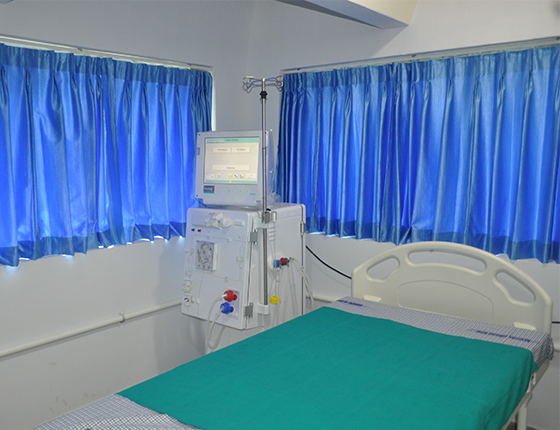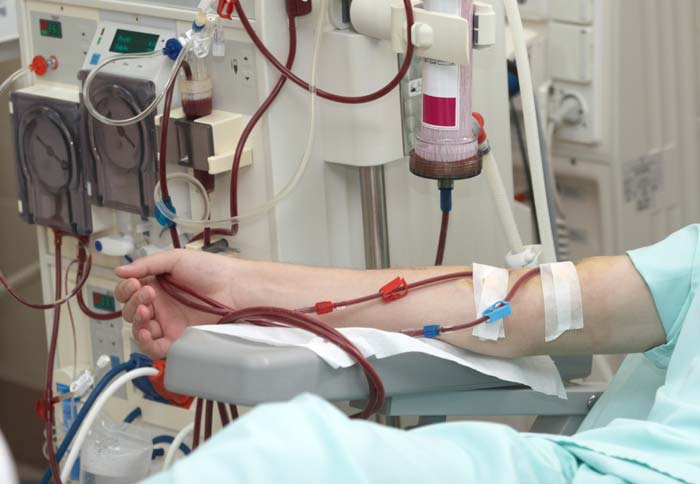Dialysis
Dialysis is the artificial process of eliminating waste (diffusion) and unwanted water (ultrafiltration) from the blood. Our kidneys do this naturally. For people having damaged kidneys which cannot carry out the function properly - may need dialysis. In other words, dialysis is the artificial replacement for lost kidney function (renal replacement therapy).
Dialysis may be used for patients having acute kidney failure (temporary loss of kidney function), or for fairly stable patients who have permanently lost kidney function (chronic kidney disease). Dialysis is also used to rapidly remove toxins or drugs from the blood e.g. snake bite and poisoning cases.
When we are healthy our kidneys regulate our body levels of water and minerals, and remove waste. The kidneys also produce erythropoietin and 1,25-dihydroxycholecalciferol (calcitriol) as part of the endocrine system. Dialysis does not correct the endocrine functions of failed kidneys - it only replaces some kidney functions, such as waste removal and fluid removal.

Dialysis
Approximately 1,500 liters of blood are filtered by a healthy person's kidneys each day. We could not live if waste products were not removed from our kidneys. People whose kidneys either do not work properly or not at all experience a build up of waste in their blood. Without dialysis the amount of waste products in the blood would increase and eventually reach levels that would cause coma and death.
There are two main types of dialysis - peritoneal dialysis and haemodialysis.
Peritoneal dialysis : A sterile (dialysate) solution rich in minerals and glucose is run through a tube into the peritoneal cavity, the abdominal body cavity around the intestine, where the peritoneal membrane acts as a semi-permeable membrane.
Haemodialysis : We offer only Haemodialysis. In this process blood circulates outside the body of the patient - it goes through a machine that has special filters. The blood comes out of the patient through a catheter (a flexible tube) that is inserted into the vein. The filters do what the kidney's do; they filter out the waste products from the blood. The filtered blood then returns to the patient via another catheter. The patient is, in effect, connected to a kind of artificial kidney.
Patients need to be prepared for haemodialysis. A blood vessel, usually in the arm, needs to be enlarged. Surgery is required for this. The enlarged vein makes the insertion of the catheters possible.
Haemodialysis usually lasts about 3 to 4 hours each week. The duration of each session depends on how well the patient's kidneys work, and how much fluid weights the patient has gained between treatments.

Our dialysis unit started on 20th October 2016. We have state-of-the- art new dialysis machine from B. Braun, Germany supported by quality RO plant. The unit is run by renowned nephrologists for greater safety of patients. Since Dialysis is a frequent and life long process we have kept our charges lowest in the industry to reduce financial burden of patients.
For further enquiries and appointment please contact with us.